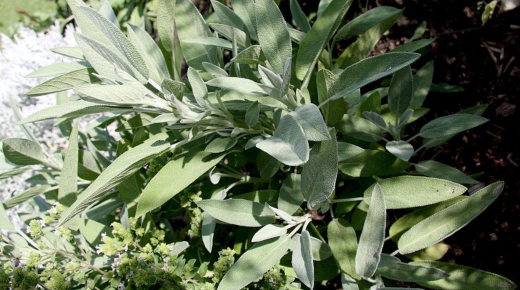SAGE

Sage (Salvia officinalis) is also called common sage, garden sage or just sage. It is a perennial, evergreen subshrub, with woody stems, grayish leaves, and blue to purplish flowers. It belongs to the mint family, alongside other herbs like oregano, rosemary, basil, and thyme. Sage is considered one of the “wonder” herbs in herbal medicine.
Sage according traditions:
- contains vitamins A and C, along with several other antioxidants and is also rich in vitamin K, which aids the body in clotting blood.
- antibacterial and antiseptic.
- along with thyme, and propolis helps reduce inflammation as well as imparting antibacterial properties.
- is linked to several health benefits, including improved brain function and lower cancer risk.
- is also helpful for gingivitis (inflammation of the gum) and sore throats, as well as gastritis (inflammation of stomach lining).
- can help with excessive sweating that can occur with changes in hormones.
- can be helpful for nervous exhaustion, nervous tension and headaches.
- calms the digestive system and reduces cramping if you suffer from reflux.
- is helpful for improving memory and senses.
- has antimicrobial properties that may kill microbes that encourage the growth of dental plaque.
- helps reduce the intensity and frequency of menopause symptoms, such as hot flashes and irritability.
- slowers blood sugar levels by increasing insulin sensitivity.
Sage Tea
- 1 cup (2½ dl) water
- 4–5 sage leaves
- few drops of lemon juice, to taste
- pinch of sugar, to taste
Method
- Bring the water to boil.
- Take off the heat and pour on sage leaves.
- Let it steep for about 5 minutes.
- Add sugar and lemon juice.
- Stir well and serve it warm.
Tips
-
Sage pairs well with many other herbs and natural sweeteners.
• Lavender or mint plays up the refreshing aspect.
• Rosemary will accentuate the pine taste.
• Fresh grated ginger will bring a bit of heat and a zing.
• Maple syrup or honey will offer a bright sweetness along with a floral aroma. - You can make the tea iced instead – chill it after steeping and infuse some fresh blackberries, or blueberries, or raspberries.
